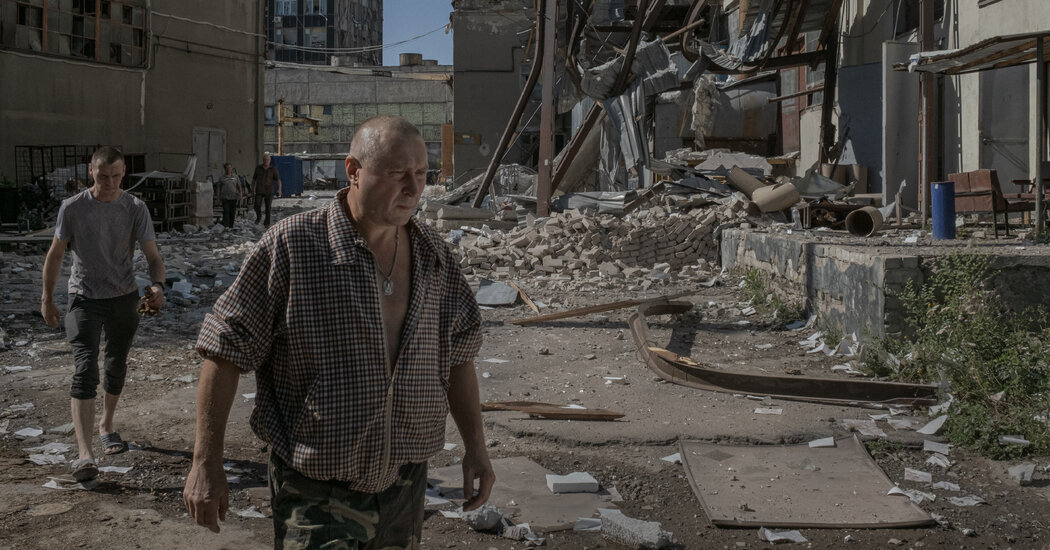
DONETSK PROVINCE, Ukraine — The thuds of artillery sounded in the distance, but the noise from the yard of a house near the front line last week was from the shouts of children playing.
Even as the war edged closer, Natasha, a 46-year-old mother of six, said she had no intention of giving up and leaving, focused instead on keeping house and home together.
“We could go,” she said, adding that Ukrainian soldiers stationed nearby had suggested she evacuate the family. “But how would we earn money? And I have kids to feed.”
President Volodymyr Zelensky has said he is preparing a mandatory evacuation for civilians in the areas of fiercest fighting in Donetsk Province, saying hundreds of thousands of people — including tens of thousands of children — should leave immediately.
Iryna Vereshchuk, a deputy prime minister of Ukraine, said as many as 200,000 people needed to leave the region because there would be no heat or gas supply in Donetsk this winter due to the Russians’ destruction of gas pipelines.
Natasha and her husband, Oleh, 49, are the only couple with children remaining in their village on a hill just a few miles from Russian positions in eastern Ukraine. But their dilemma is similar to that of many rural families. For the children still living in the villages and towns along this stretch Donetsk Province, life is a precarious self-sufficient existence as the war threatens to sweep over them.
In the countryside, children pop up unexpectedly, on their bikes fetching water or balancing a bag of produce handed out by a charity. In the towns, they accompany their parents to the store, their faces wan and tired after days sheltering in basements.
Natasha and Oleh have five sons and one daughter — Tolik, 14, Sasha, 12, Vova, 11, Nastya, 9, Kostya, 7 and Yarik, 6. The couple both lost their jobs when the nearby factories closed with the onset of war five months ago, and they have struggled to make ends meet since. They asked that their surname not be published to avoid any retribution in the future.
Government services in the area have largely ceased. Child support in Ukraine pays only for children under the age of 3, so the family is no longer eligible for assistance, Natasha said.
“We had to manage by our own devices,” she said.
Natasha became the main breadwinner when neighbors fled the war and left their house and dairy cows in her care.
She and her eldest boys are now accomplished dairy farmers. Tolik and Vova tore themselves away from the family cellphone to bring in the cows on a recent evening from the grassy hillside beside the village. Natasha tied up the cows, and Vova hooked up the battery-operated milking machine.
She rises at 4:30 every morning to milk the cows and taught herself to make sour cream and cottage cheese, which she sells in the nearby town market.
There is no bus service into town anymore, so she walks the whole way most days, leaving at 6:30 a.m. to arrive by 8.
In town, she sits under the trees on a sidewalk with a group of women selling homemade pies, and fruit and vegetables from their gardens. But customers are dwindling as Russian rocket strikes have hit the city with growing intensity.
This fall, with the youngest, Yarik, turning 6, all of the children were due to be in school, Natasha said.
Instead, with education badly disrupted for two years during the pandemic, the children had only started returning for two week shifts last fall. Then the war broke out, and school was suspended again.
Schooling apart, the children seem little affected by the war, she said.
“The little ones are not afraid of anything,” she said. They have cellars in both houses to use as bomb shelters, but keeping the children inside is not easy. “I shout to them to hide, but as soon as a helicopter flies, they go out. It’s interesting to them.”




